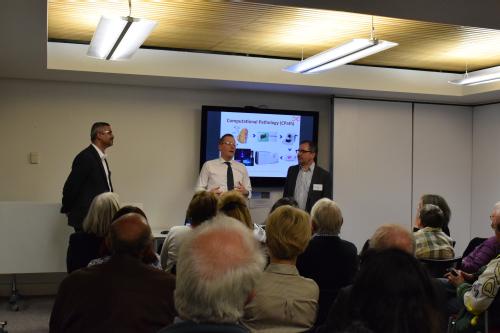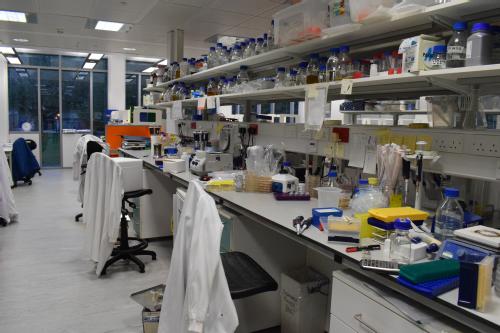Cancer Research Centre open evening highlights importance of digital pathology
Our Cancer Research Centre welcomed around 50 members of the public, staff and students to its open event last night, 26 April, for an evening focused on how digital pathology is making grading of cancer faster and more accurate.
Previously, tumours were studied by a pathologist through a microscope or by a radiologist on an x-ray sheet. University Hospitals Coventry and Warwickshire (UHCW)’s pathology department was the first in the UK to become digitised, and only the second in Europe.
During our event, Professor Nasir Rajpoot from Warwick’s Department of Computer Science and Dr David Snead, a pathologist at UHCW, talked the audience through how their teams are now working with an automated slide scanning process, dealing with 70,000 tissue samples per year and producing 1,000 slides every day. Thanks to this process, grading of cancer (understanding how aggressive the tumour is) has become more accurate, resulting in more targeted treatment for patients.
Professor Lawrence Young, Director of the Centre, also spoke to the audience during the evening, highlighting the importance of inter-disciplinary research:
‘Here at Warwick, we’re very proud of how we work together between different disciplines’, he said. ‘As well as colleagues from the Medical School, we work with collaborators from across campus on our cancer research, including chemists, physicists, engineers, mathematicians and computer scientists. We believe that the transformation of cancer and its management will only come as a result of inter-disciplinary research’.
Following a Q&A session with the speakers, our guests were given a tour of the labs and shown some of the high-tech equipment used for our cancer research.
This open evening was the first of a series of events inviting members of the public on to campus to learn about the great cancer research that happens here, as well as members of the university community who’d like to find out more. Keep an eye on the Cancer Research Centre website for more details about future events.


